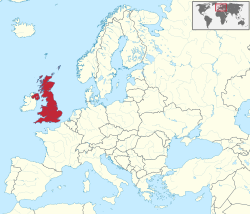
The Common Travel Area is an open borders area comprising the United Kingdom, Ireland, the Isle of Man and the Channel Islands. The British Overseas Territories are not included. Based on agreements that are not legally binding, the internal borders of the CTA are subject to minimal controls and can normally be traversed by British and Irish citizens with minimal identity documents. The maintenance of the CTA involves co-operation on immigration matters between the British and Irish authorities.
The right of abode is an individual's freedom from immigration control in a particular country. A person who has the right of abode in a country does not need permission from the government to enter the country and can live and work there without restriction, and is immune from removal and deportation.

A British Overseas Territories citizen (BOTC), formerly called British Dependent Territories citizen (BDTC), is a member of a class of British nationality granted to people connected with one or more of the British Overseas Territories.

The visa policy of Australia deals with the requirements that a foreign national wishing to enter Australia must meet to obtain a visa, which is a permit to travel, to enter and remain in the country. A visa may also entitle the visa holder to other privileges, such as a right to work, study, etc. and may be subject to conditions.

Visitors to the United States must obtain a visa from one of the U.S. diplomatic missions unless they are citizens of one of the visa-exempt or Visa Waiver Program countries.
The Electronic System for Travel Authorization (ESTA) is an automated system that determines the eligibility of visitors to travel to the United States under the Visa Waiver Program (VWP). ESTA was mandated by the Implementing Recommendations of the 9/11 Commission Act of 2007. ESTA only authorizes travel to a U.S. airport, border, or port of entry, but admissibility into the United States is determined by a U.S. Customs and Border Protection (CBP) officer upon arrival. The ESTA application collects biographic information and answers to VWP eligibility questions.

The visa policy of the Schengen Area is a component within the wider area of freedom, security and justice policy of the European Union. It applies to the Schengen Area and to other EU member states except Ireland. The visa policy allows nationals of certain countries to enter the Schengen Area via air, land or sea without a visa for up to 90 days within any 180-day period. Nationals of certain other countries are required to have a visa to enter and, in some cases, transit through the Schengen area.

The Gibraltar variant British passport is a British passport issued to British Citizens and British Overseas Territory Citizens who work or live in Gibraltar. Having Gibraltarian status alone, without being resident in Gibraltar, is insufficient to obtain a Gibraltar Passport. Gibraltar passports are issued by the Passport Office of the Gibraltar Civil Status and Registration Office. Since 2005, passports issued in Gibraltar have been biometric.

The primary law governing nationality in the United Kingdom is the British Nationality Act 1981, which came into force on 1 January 1983. Regulations apply to the British Islands, which include the UK itself and the Crown dependencies, and the 14 British Overseas Territories.

Visa requirements for Saudi citizens are administrative entry restrictions by the authorities of other states placed on citizens of Saudi Arabia.

Visa requirements for British citizens are administrative entry restrictions by the authorities of other states placed on citizens of the United Kingdom.
The visa policy of South Korea allows citizens of certain countries to enter South Korea without a visa (Korea Electronic Travel Authorization or without a K-ETA at all.

The visa policy of the United Kingdom is the policy by which His Majesty's Government determines visa requirements for visitors to the United Kingdom, and the Crown dependencies of Guernsey, Jersey, and the Isle of Man and those seeking to work, study or reside there.

The visa policy of Ireland is set by the Government of Ireland and determines visa requirements for foreign citizens. If someone other than a European Union, European Economic Area, Common Travel Area or Swiss citizen seeks entry to Ireland, they must be a national of a visa-exempt country or have a valid Irish visa issued by one of the Irish diplomatic missions around the world.

Under normal circumstances, visitors to Kuwait must obtain a visa unless they come from one of the visa exempt countries or countries eligible for visa on arrival/eVisa. All visitors must hold a passport valid for 6 months.
Visitors to Argentina must obtain a visa from one of the Argentine diplomatic missions unless they are citizens of one of the visa-exempt countries.

Kenya has abolished visa requirements for all foreign visitors from 1 January 2024, and instead implemented an Electronic Travel Authorisation (eTA) system.

Visitors to Saudi Arabia must obtain a visa, unless they come from one of the visa exempt countries.

The European Travel Information and Authorisation System (ETIAS) is a planned electronic authorisation system of the European Union for visa-exempt visitors travelling to the Schengen Area, as well as Cyprus.
An electronic visa (E-Visa) and an electronic travel authorization are digital travel permits commonly required in conjunction with a valid passport for entry into specific jurisdictions. These electronic travel documents have gained prominence in the modern era of digital connectivity and streamlined travel processes.















